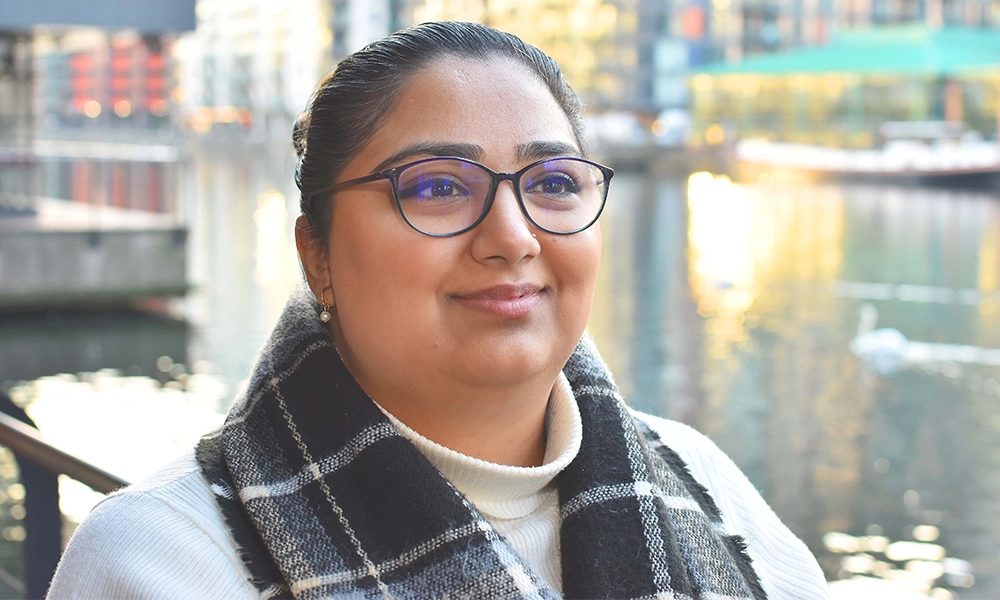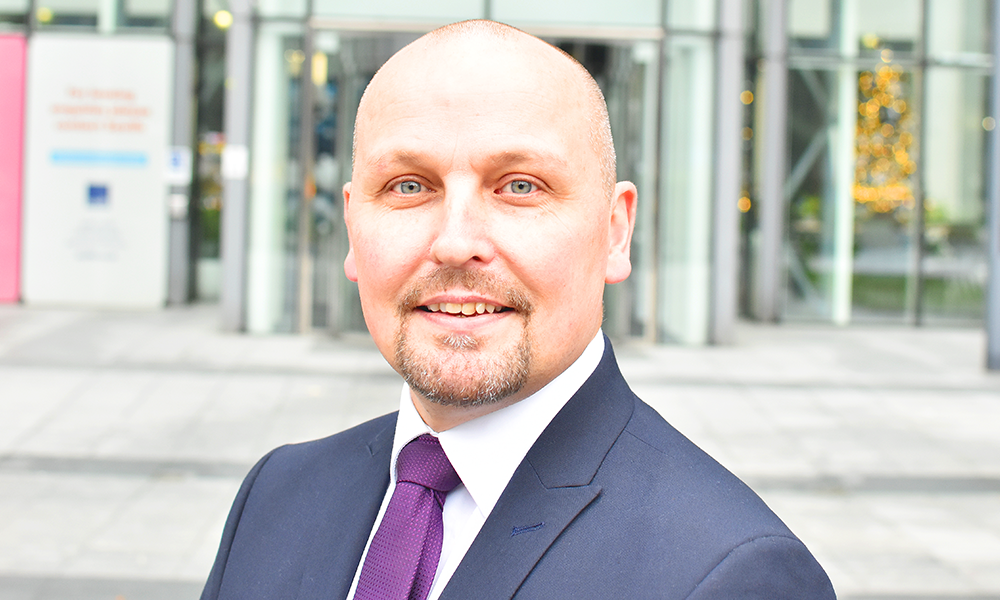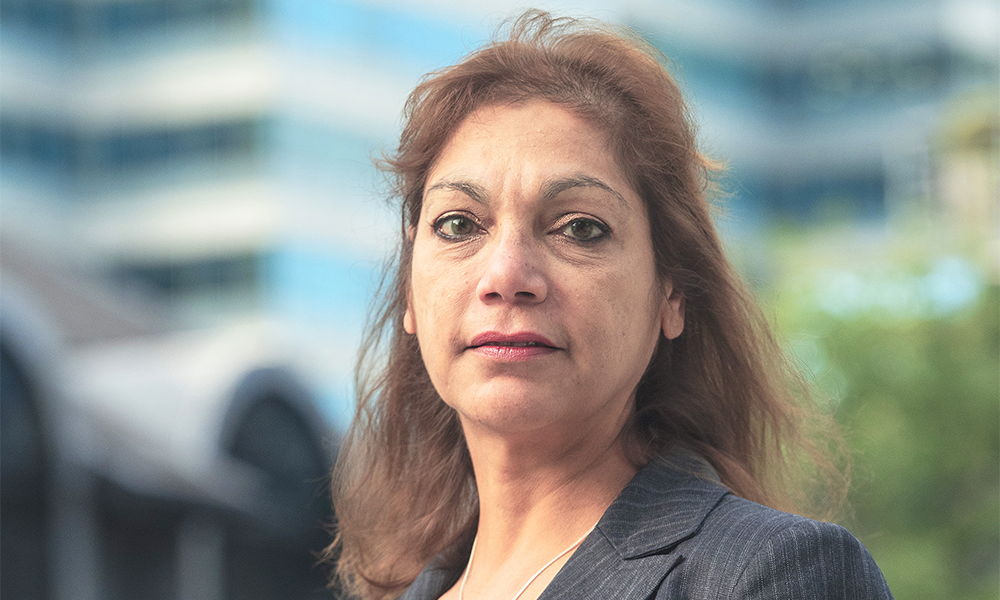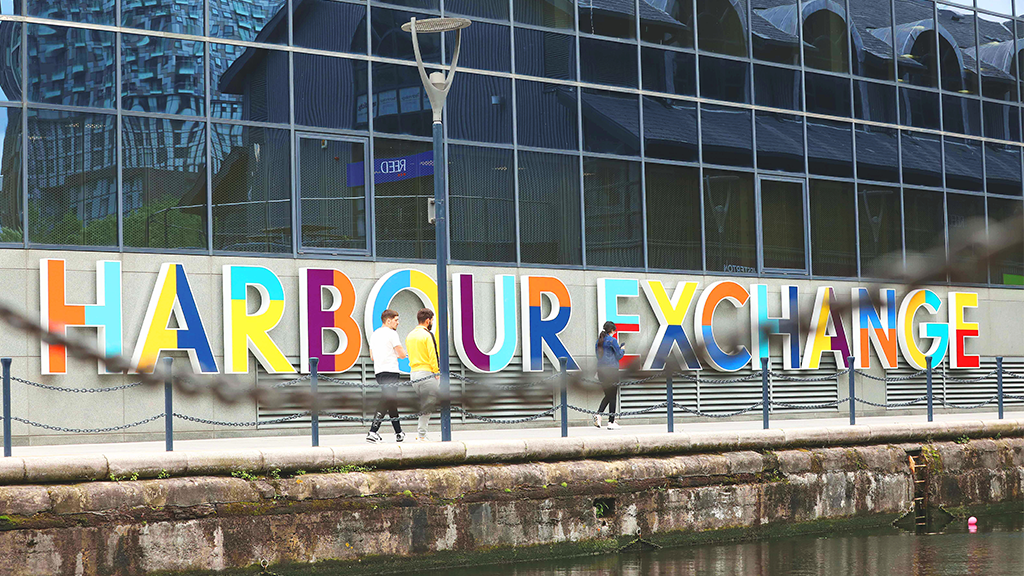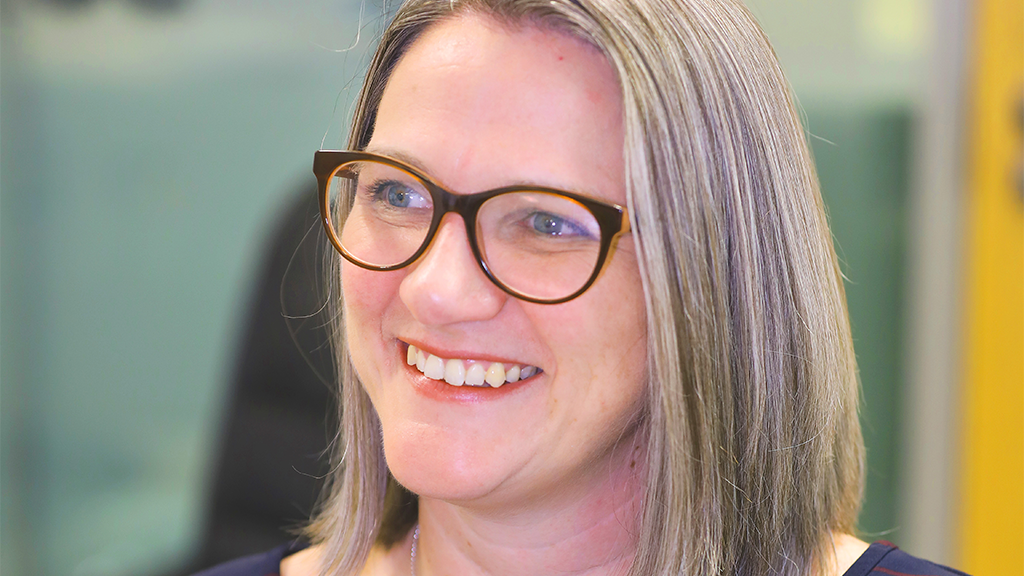Institution launches Isle Of Dogs facility, building on 13 years of success in the Canary Wharf area
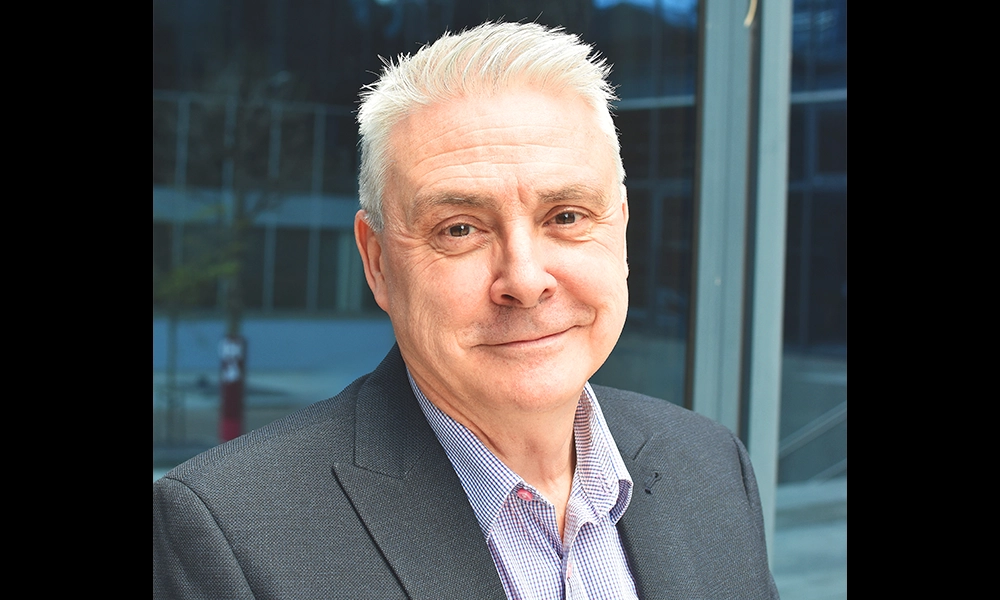
Subscribe to our free Wharf Whispers newsletter here
Alan Hardie is, at least in part, powered by Irn-Bru.
The Glaswegian beverage famously “made in Scotland from girders” is an on-brand drink of choice for the man in charge of the University Of Sunderland In London for two reasons.
Firstly, the orange liquid fits neatly with the institution’s colour scheme.
Secondly, the ammonium ferric citrate that gives it its bright and fizzy hue recalls the steel necessary to make a success of launching a London campus – steel is an alloy rich in strength and flexibility.
And what a triumph the University Of Sunderland’s campus in the capital has been.
Since its launch in 2012 at a building on Marsh Wall on the Isle Of Dogs, the campus has seen more than 28,000 students pass through its doors.
The University Of Sunderland In London started off with four programmes, expanding over the years to 31.
It currently has around 6,000 students with an expectation to “grow significantly”.
That forecast has led to an expansion, with a £10million investment in new space at Harbour Exchange – a facility that was officially opened on March 27.

a new campus
“We needed to move because our existing building was tired and it was time for a change,” said Alan, who is the university’s pro vice-chancellor for international office and branch campuses.
“The other thing was there just wasn’t the space for some courses and there was nothing else we could do to improve it.
“Those were the things driving us to do something better.
“We chose this location because it’s a great part of London with fantastic transport links and we already had thousands of students coming here – we didn’t want to say to them that we were making life more awkward by relocating somewhere else.
“I’m amazed at the facilities we’re now able to offer.
“I was able to take one of my deputy directors – Lynsey Bendon – away from her student role temporarily and the job she and the team have done on the new campus is outstanding.
“When I first saw it finished, I was genuinely blown away – we couldn’t be happier. It’s light, it’s funky and everything’s been done to a high standard.
“There are lots of areas for students to work together and on their own and a great staff area too.
“Hopefully it projects confidence, that we’re serious about what we’re doing.
“We’ve got the space to be even more successful – to prove ourselves – and I think we can.”
Based on the last 13 years, that’s an aim that seems eminently achievable, given the progress already made.
For Alan, the London campus’ growth has been a story of adaptability – being able to rapidly change course.
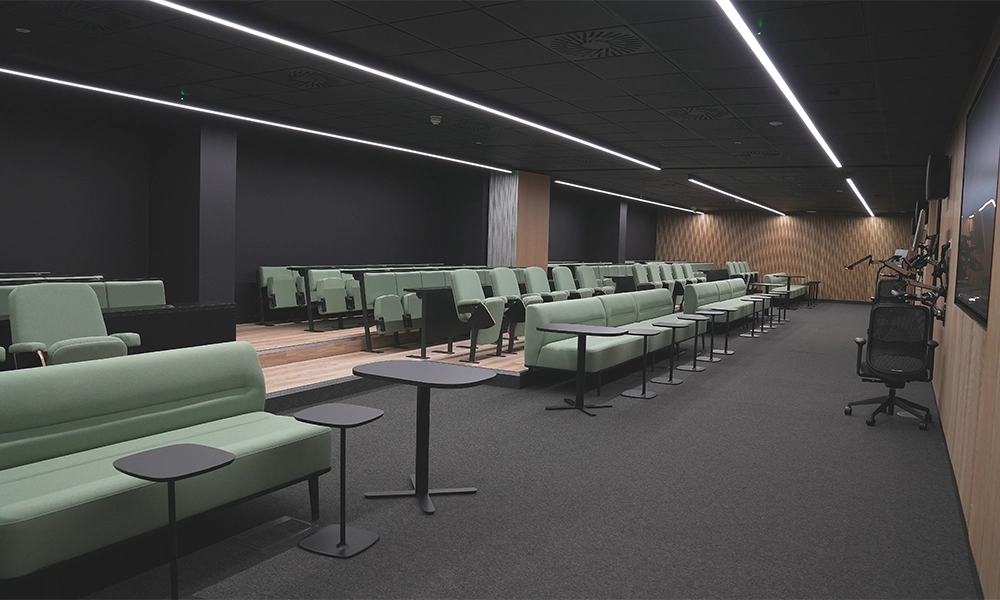
adaptability at the University Of Sunderland In London
”Here we always want the student to be at the heart of any decisions we make,” said Alan, who is originally from Newcastle and has a private sector background working in human resources.
“If that means paying for extra staff to make things more efficient, then that’s what has to happen.
“As we’re a smaller part of the overall organisation, we’ve managed to speed things up that would otherwise have to go through a committee for approval.
“What we’ve been fairly good at is taking time to understand our student demographic, which is different from some other universities.
“If people come through the door we should treat them really well and, in general, I think we do that.
“If you go into a supermarket, for example, they say they’re doing things for the customer, but the way the store is laid out is really in the company’s interests.
“We choose to operate the campus in a way that works for our students, many of whom are older and may be fitting their education round jobs and childcare.
“It’s important they don’t feel bounced around and that we run as a one-stop-shop.
“Over the 13 years, it’s been key that we’ve learned how to do things ourselves and change where necessary.
“We have a variable intake model, meaning we welcome new groups of students three times a year.
“We have people coming into the campus and leaving all the time with students at all stages of our courses.
“What that allows is for us to identify what is and isn’t working within a 12-week window three times a year, rather than waiting to assess things at the end of a full 12 months.
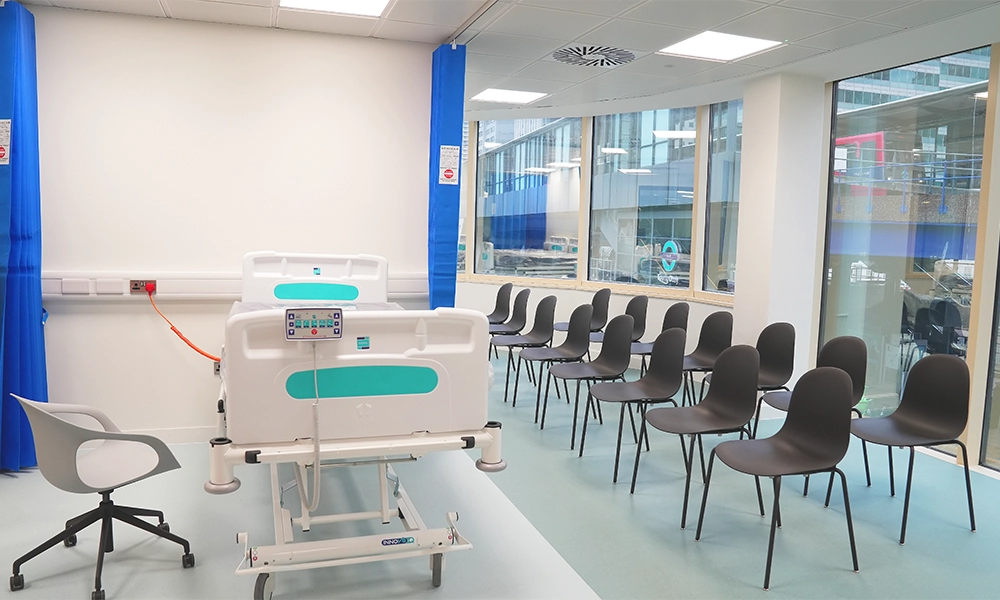
“It means we can quickly adapt and iron out any problems if necessary ready for the next intake.
“That’s been incredibly rewarding as a process and it’s relied on having a team of like-minded people.
“We’re 252 miles from the mothership and while the original idea was that the campus would run with a small group of staff with services provided remotely from afar, it became clear after a few weeks that wasn’t going to work.
“So we learned how to be more self sufficient and that’s been a theme during our time in the capital.
“We want to celebrate our students.
“We switched to using Southwark Cathedral for our graduation ceremonies, which is an iconic venue.
“Previously we used local hotels, but moving things takes us to another level, which is what we’re always trying to do.
“The question for us is always: ‘Why should students come here?’. It’s up to us to create the answers.
“We’re not for everybody. Some institutions have better programmes or a greater legacy – it’s our choice whether we want to challenge that by doing things differently.
“Initially when we opened with just 199 students there was a kind of modesty – a lack of confidence – for the first couple of years.
“But with support from our base up in Sunderland we’ve continued to grow and expand.”
With such stellar facilities now on tap, the university is clearly on a sure foundation to build on that even further.
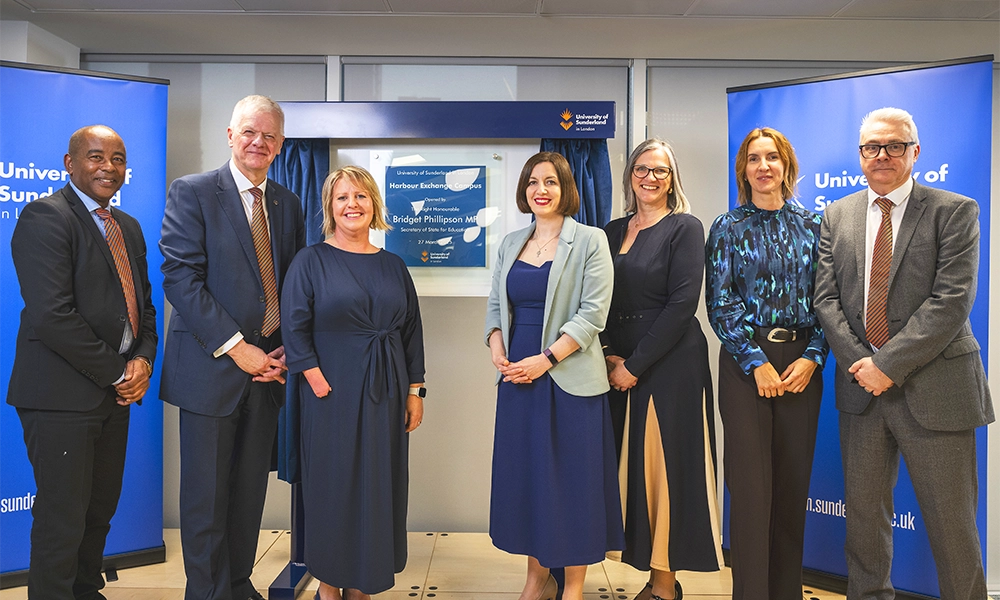
opening the university’s new campus
>> The University Of Sunderland In London’s new campus was officially opened on March 27, 2025, by secretary of state for education, Bridget Philipson MP.
She said: “As a Sunderland MP, it does give me such pride to see the university going from strength to strength.
“The investment here is the stepping stone to even more growth, excellence and opportunities for people to study.
“I know the impact the university has for local economies, for driving growth both in the north of England and in London.
“It’s more important than ever that our universities are financially sustainable and that means stepping up, as Sunderland has, to drive forward growth, opportunities and productivity – that dynamism that the sector can bring.
“I think we all know we have to do more to narrow those gaps where it comes to inequality and educational opportunity.
“The University Of Sunderland has always been at the forefront of driving that forward and I’ve seen that impact, not just for young people, but for all the adults who have had the chance to go back into education and get on and everything that means for them and their families as well.
“That’s what the university is doing with this new building and I’m so excited to see it put to such good use.
“We can all feel what that means in terms of possibilities for those who come to study here from overseas and also from local communities.”

key details: University Of Sunderland In London
The University Of Sunderland In London is based at Harbour Exchange on the Isle Of Dogs and offers courses in business, finance, management, tourism, hospitality, events, engineering, project management, nursing and health as well as postgraduate research.
Find out more about what the institution offers here
Read more: How Orbit Clipper is set to become the first all-electric ferry on the Thames




